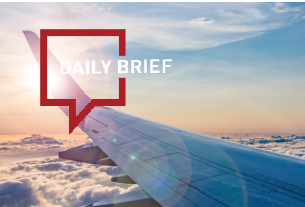With some borders starting to reopen, we’re seeing travelers return with optimism in pockets of the world. As vaccine rollouts continue, we’re at a pivotal point to rebuild travel for the benefit of business and leisure travelers, as well as the industry as a whole.
Looking at the future of the sector, governments and stakeholders across the industry are exploring the benefits of digital health passports.
To gather more insights into how the travel industry can rebuild, we wanted to get a sense of both business and leisure traveler views around digital health data, their comfort levels with sharing and storing data, and the solutions that may help to alleviate concerns in the future.
To do this, we conducted a survey with Censuswide in late February across nine markets (UK, Spain, Germany, Russia, the UAE, France, India, Singapore and the US) with 9,055 travelers who have been abroad for leisure and business in the last 18 months. It revealed three key similarities and differences between business travelers and leisure travelers’ sentiment towards digital health passports and travel technology.
Similarity: Overall confidence in digital health passports
Confidence among business and leisure travelers is high when it comes to traveling again and using digital health passports. Sixty percent of the business travelers surveyed stated that they would book international trips 3-12 weeks after restrictions are lifted. When it comes to leisure, 48% of the respondents said the same. Interestingly, 92% of the business travelers would be comfortable using digital health passport for future travel as compared to 88% of leisure travelers. Just 8% of the business travelers said they would not want to use a digital passport under any circumstance, which is close to the 12% of the leisure travelers. This shows that digital health passports are the key to reopening both leisure and business travel.
Similarity: Recognition of the benefits in storing health data electronically
While there have always been concerns around privacy, the report revealed that both business and leisure travelers see clear benefits of storing health data electronically and the impact it could have on their journey and safety. Seventy-one percent of the business and leisure travelers would be willing to store travel health data digitally if it enabled them to pass through the airport faster with fewer face-to-face interactions. This is key to developing a safe travel ecosystem. Moreover, 68% of the business travelers and 66% of the leisure travelers would be willing to store travel health data electronically if it enabled them to travel sooner. And 70% of the business travelers and 68% of the leisure travelers would do the same if it enabled them to travel to more destinations. This reveals that ease-of-use/convenience is the key factor for digital health data storage acceptance.
Similarity: The need for standardization across the industry
When it comes to storing health data digitally and using digital health passports, the survey found that standardization and regulation are essential to instilling confidence among both business and leisure travelers. According to the report, 47% of business travelers would be happy to use a digital health passport if it was accepted by most countries and regulated by international standards. This rises to 50% amongst leisure travelers.
However, a key challenge the industry is facing currently is how to achieve this level of standardization and meet regulatory requirements. For that to happen, digital health passports need to be fully integrated into airline or airport systems. This is why we have recently added new capabilities to our Traveler ID platform – a secure solution for our travel provider customers – that connects, digitizes and automates traveler identification and document validation across the traveler journey while meeting regulatory requirements. This is going to be critical to unlocking international travel in the coming months.
Now, let’s look at the differences between business and leisure traveler sentiment:
Difference: Privacy and data protection concerns are acute among leisure travelers
Like we mentioned before about data privacy concerns, the report states that leisure travelers are more concerned about privacy and security when it comes to storing health data. Forty-one percent of the leisure travelers are concerned about the security risks with personal information being compromised, which decreases to 28% among business travelers. Only 27% of business travelers are concerned about what health information needs to be shared, which rises to 35% amongst leisure travelers. Having said that, 24% of business travelers are more concerned about price increases from travel insurance companies based on health data as compared to 20% of leisure travelers. On the other hand, 24% of business travelers are concerned about keeping data current and up to date with the latest regulations as compared to 16% of leisure travelers.
Difference: Brand loyalty is key to rebuilding business traveler confidence
One of the key differences we found was that business travelers valued brand loyalty and trusted travel partners. Thirty-nine percent of the business travelers would be happy for a digital health passport to be used if they were traveling with a trusted travel company. In the case of leisure travelers, only 28% stated that a trusted brand mattered. The survey also revealed that 73% of the business travelers were more likely to feel comfortable sharing health data if the airline they most frequently traveled with offered a way to store that data in an app they used; 61% of the leisure travelers said the same.
Difference: Sentiment towards technology
When it comes to technology, we wanted to see what types of technologies travelers thought would increase confidence to travel in the next 12 months. There was a variation among business and leisure travelers there, too. Twenty-four percent of business travelers and 16% of leisure travelers said that voice recognition technologies increased confidence in travel. Whereas, 33% of leisure travelers and 27% of business travelers were more likely to prefer self-service check-in to build confidence. Although both business and leisure travelers saw the value of biometrics, they did so at different stages of the journey. Fifty-five percent of the leisure travelers were comfortable using biometrics at boarding gates, which dropped to 47% among the business travelers. However, 33% of the business travelers were comfortable using biometrics at conferences and events, which dropped to 19% among the leisure travelers.
The survey aims to understand consumer sentiment to safe travel in light of COVID-19 and traveler receptiveness to providing digital health information to enable the opening up of travel. Over a year after the start of travel restrictions, technology deployment has accelerated across all parts of the sector, designed to foster increased confidence among travelers and help the industry to adapt.
What is encouraging from this survey is that as governments and stakeholders across the travel industry explore the benefits of storing health data electronically for rebuilding travel, the message from both the business and leisure travelers is clear: digital health passports can be a vital tool in opening up travel. However, it is up to us to understand their different needs and similarities to tailor the experience and install confidence back into travel. At Amadeus, we’re committed to rebuilding travel together with the industry to get the world moving again – both for leisure as well as business.
Read original article




